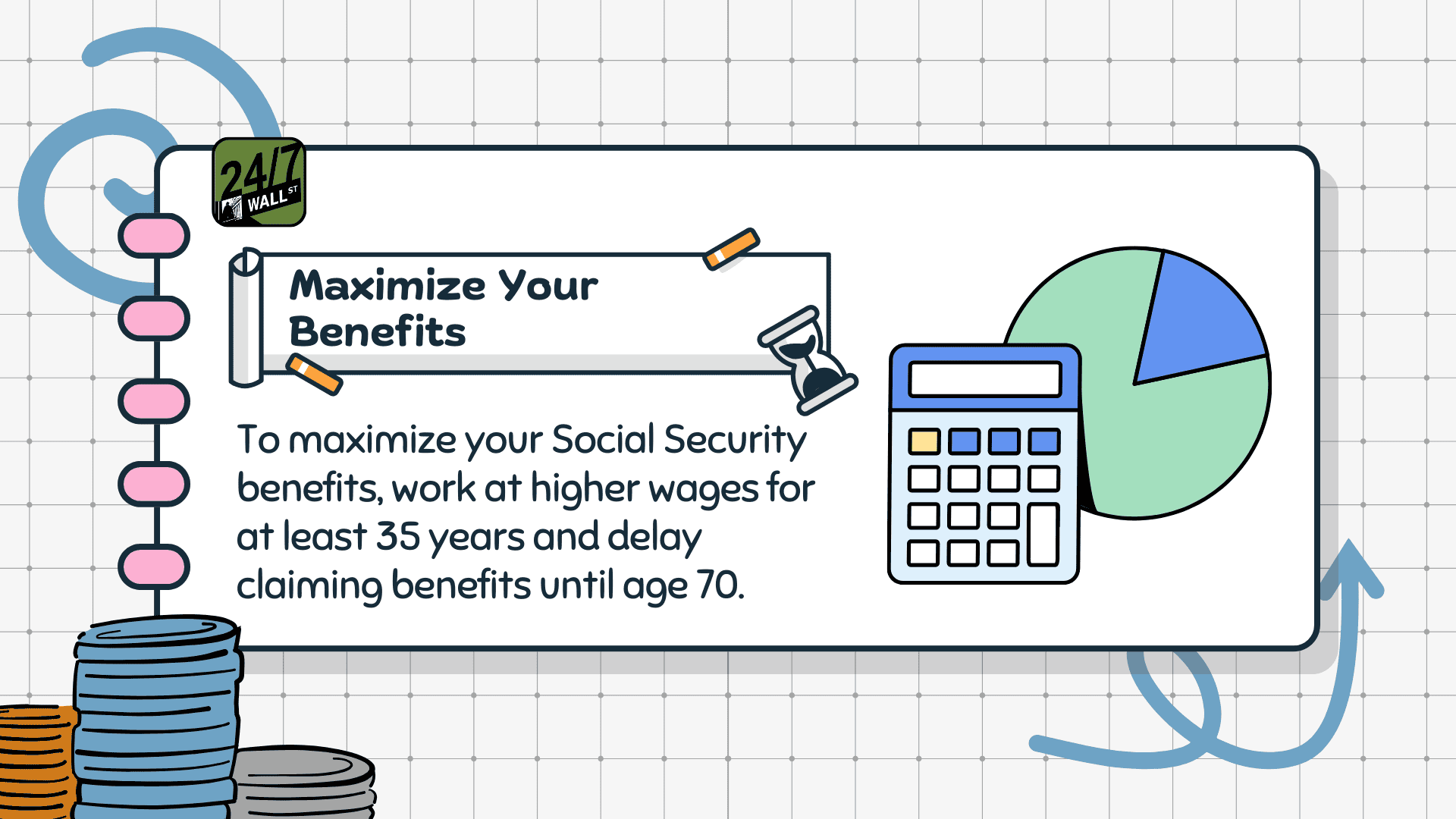Personal Finance
Baby Boomers Are Blowing It With These Retirement Mistakes

Published:
Last Updated:

There are a just a few resources online about how to maximize your retirement, make more money, and generally how to spend your money, many with conflicting tips and tricks and plans to get rich quick. The thing is, most of these tips and guides are for people with significant assets or for people who only care about making or saving as much money as possible — they don’t always give the best advice for everyone else.
For those who are already satisfied with the amount of money they have saved, or simply want to avoid making costly mistakes, we have a few tips on the mistakes many Baby Boomers are making that can be easily avoided.
Typical retirement investment strategies involve a balanced investment in high-risk stocks early in life and slowly rebalancing those investments to low-risk, safe, and more stable investments as you age.
If you are managing your own investments don’t make the mistake of forgetting about them until your retirement. As your retirement date approaches, begin to reallocate your investments from small company stocks to government bonds and large company stocks. Even better, invest in stable mutual funds or index funds.
Leaving your investments as they were when you first invested is inviting disaster as one mildly bad trading day can wipe away hundreds of thousands of dollars from your retirement fund right before you retire.
The closer you come to your retirement date, the more you want your current investment portfolio to better reflect the actual return you will have on your last day of work. This advice, of course, goes the other way.
Do not let yourself be convinced to invest in risky or new ventures. While you might get lucky and make a lot of money, you have to weigh that possibility against losing it all. There are too many people out there who take advantage of soon-to-be retirees who almost met their savings goals by promising guaranteed investment returns. Don’t fall for it! You will see targeted ads, and receive emails, phone calls, and messages about new opportunities to make up your savings difference or a ‘new’ investment opportunity just for you. Most of these are scams, and none of them can guarantee any kind of return.
You stuck to your investment strategy so far, don’t give up just before the finish line.
Debt can be a powerful vehicle for building wealth, but only if you have enough time to take advantage of the leverage that debt provides and turn it into a profit. Taking on significant debt just before retirement only invites disaster.
This is often hard advice to hear in a culture where we often can’t survive without taking on debt, and often do it without thinking twice. Our advice to you: start thinking twice about the debt you take on as retirement approaches.
This advice is particularly relevant today as interest rates are at record highs, however, we recommend you stick to it regardless of interest rates. As you age, health complications become more common and more likely, and in an emergency, you need to have enough savings to cover your expenses without worry. Significant debt erodes those savings and, in a worst-case scenario, burdens your family with bills and debt while you are recovering.
It can be hard to give up the life of luxury we convinced ourselves that we need that is only made possible with significant debt, but if you haven’t met your retirement goals (and even if you have) then opting for cheaper and more affordable options is the smartest thing you can do.
Be honest with yourself. How much are you actually going to travel to your second summer home you want to buy? How often are you going to drive your super-expensive car? Is your current home really too small?

Forgetting to make plans for your own death (or incapacitation) is a costly mistake not only for you, but your family and anybody else involved with your finances.
The more complicated your estate, family, and financial situation, the more necessary it becomes to make a detailed and legally sound plan for what happens to everything when you pass on.
You have many options for doing this, and the most common include a will or a family trust. Which one you pick depends on your personal situation.
Of the two, a family trust is much safer, cleaner, and more legally binding than a will. Additionally, you can dictate what happens to your estate in the event you become unable to manage it yourself. You can set conditions on where and when assets are dispersed, and more. Most importantly, it protects your assets from messy litigation and family disputes. A will, on the other hand, only takes effect after you die and can be disputed by family or other interested parties.
We have covered why you should set up a family trust before, but essentially there are seven reasons why you should do so: you have complicated finances, there is any chance of a messy inheritance, you don’t qualify for Medicare, you want to guarantee you charitable donations, you need to disperse money before your death, you need legal or financial protection, or you want to control your assets after your death.
Don’t assume you have time to do it later!

There are a handful of ways to maximize your Social Security payments which we have covered before. If you didn’t know that you could influence how much Social Security you can receive, you’re not alone. Millions of Americans don’t know that they can increase their Social Security with a few simple decisions, and if they do, they don’t know what those decisions are.
What you might not know, however, is that there are two reasons why you should delay your retirement instead of retiring at the first opportunity.
First, you can retire whenever you want, but there is a window of early retirement during which you can defer retirement and enjoy higher Social Security payments in return. Currently, the early retirement age is 62. Those who retire at this age receive a discounted Social Security payment each month because they are retiring early. However, if you defer retirement, your payments will increase for each year you wait, all the way until age 70, when the increase stops.
Second, your maximum Social Security payment is calculated using your income during your highest-paying working years. For most Americans, their highest-paying years are the years immediately preceding retirement. If you retire early, that means you aren’t taking advantage of your most productive years, leading to lower payments. Adding just five years of high-income earnings to your Social Security calculation can make a big difference when combined with the other factors and the growth of your savings and investments.
That’s it! If you can avoid these four major mistakes, retirement should be much easier and less scary.
Are you ahead, or behind on retirement? For families with more than $500,000 saved for retirement, finding a financial advisor who puts your interest first can be the difference, and today it’s easier than ever. SmartAsset’s free tool matches you with up to three fiduciary financial advisors who serve your area in minutes. Each advisor has been carefully vetted and must act in your best interests. Start your search now.
If you’ve saved and built a substantial nest egg for you and your family, don’t delay; get started right here and help your retirement dreams become a retirement reality.
Thank you for reading! Have some feedback for us?
Contact the 24/7 Wall St. editorial team.